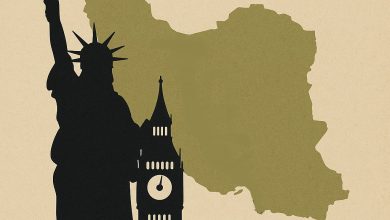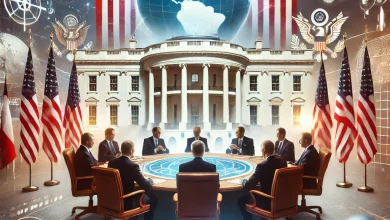The Jekyll Island Hunters and the Federal Reserve Octopus:
From Capital Struggles to the Trump-Netanyahu Nexus in Reviving Neo-Fascism and Neo-Nazism

The phenomenon observed today in global politics and economics reveals a complex overlap of political, economic, social, cultural, and military elements. Rooted in historical processes within the United States—particularly from the early 20th century—this phenomenon can be analyzed through the lens of critical political theory. The United States, once hailed as the “land of opportunity,” is now reproducing structures of power and capital in ways that many observers view as laying the groundwork for the resurgence of neo-fascism and neo-Nazism in a new form.
The origins of this trajectory can be traced back to the secret agreements of 1910 on Jekyll Island, which ultimately led to the creation of the Federal Reserve. While these agreements were ostensibly designed to regulate financial markets, in practice they became a mechanism for concentrating capital and perpetuating inequality. From the perspective of critical theories of power, the Federal Reserve is not merely a financial institution, but rather a structural symbol enabling a small group of economic and political elites to direct and restrain the global capitalist system.
Today, this monopolistic logic of capitalism operates through a multilayered network consisting of powerful lobbies (such as AIPAC), transnational corporations, the military-security complex, media conglomerates, and economic cartels. Together, these actors advance a form of “socio-genetic screening” designed to consolidate the dominance of a privileged minority while managing the majority of the masses through both intellectual instruments (co-opted intellectuals, policy-driven think tanks) and operational tools (private armies, military contractors, political mercenaries).
Within this framework, the alliance between Donald Trump and Benjamin Netanyahu assumes critical importance. Trump, as a symbol of American right-wing populism, and Netanyahu, as the emblematic figure of Israeli security nationalism, are both engaged in a broader project to revive fascist discourses on a global scale. This project is evident not only domestically but also in the sphere of international relations, particularly in the Middle East. Policies rooted in unilateralism, Islamophobia, the Judaization of Jerusalem, expansion of settlements, and the normalization of structural violence exemplify this trend.
Theoretically, this phenomenon can be examined through the concept of “global neo-fascism,” which emphasizes the reproduction of domination under conditions of hypermodernity. The aim of this movement is not limited to political and economic control; rather, it seeks to redesign social order based on genetic and class distinctions. In other words, the gradual exclusion of marginalized populations and the empowerment of selected elites reflect a biopolitical logic nourished by institutions like the Federal Reserve and power lobbies.
Yet, this project faces significant resistance. Domestic protests in the United States, opposition from progressive and anti-racist Judaism in Israel, justice-oriented movements in Europe and Latin America, and governments critical of Western unilateralism all represent social and political barriers against this trajectory.






